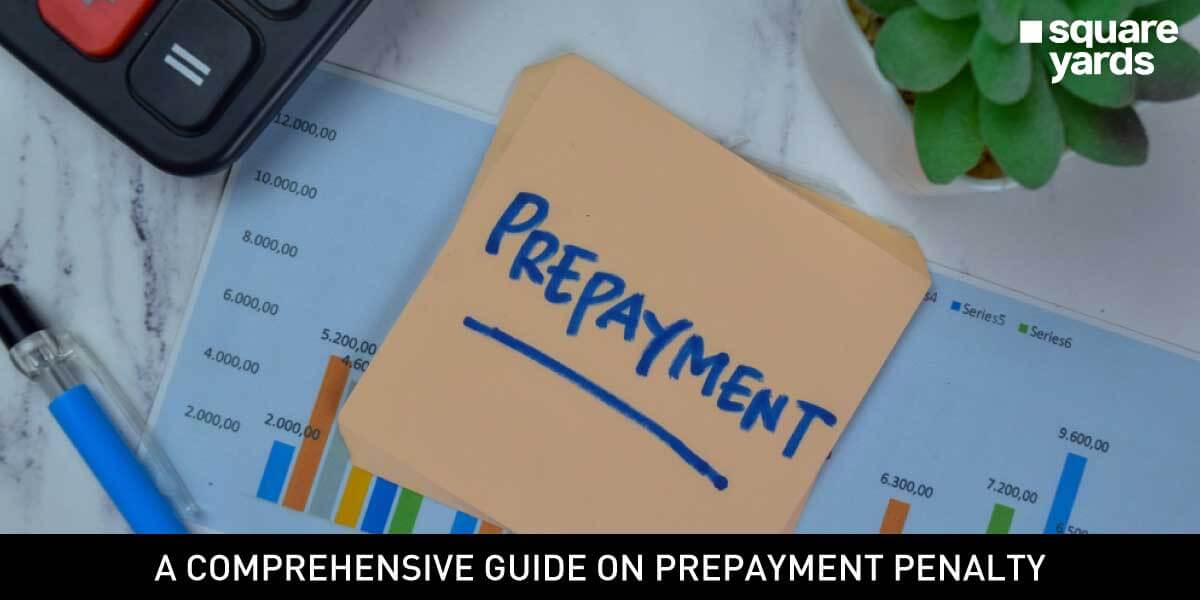Homebuyers in Canada are finding it increasingly difficult to afford their ideal home. Inadequate cash flow, a temporary job, or a poor credit history frequently exacerbate this lack of affordability. If you’re in this situation, consider having someone co-sign the loan to make it easier to get approved. Co-signing addresses the lender’s concerns about the primary borrower failing to meet the repayment terms and offers the latter a potential solution to secure the necessary financing. this blog provides a comprehensive overview of co-signing a mortgage and all that it entails.
Co-Signing Explained
Co-signing entails a mutual agreement between two parties, wherein one party willingly assumes the responsibility of signing the mortgage loan agreement and repayment obligations if the primary borrower is incapable of making timely or any payments whatsoever. the lender is promised loan payments whether or not the principal borrower is responsible for doing so. As a result, the buyer typically has no trouble getting approved for a decent loan with a reasonable interest rate and payment schedule. Co-signing a mortgage generally occurs between family members since it entails significant risk.
Distinction Between Co-signer, Mortgage Guarantor and Mortgage

You can apply for a few roles with mortgages in Canada that would give you particular responsibilities or types of ownership over the home. All positions involve varying degrees of accountability and risk for the parties.
-
Co-signer
- A cosigner, commonly a parent, a guardian, or a sibling, commits to cover the buyer’s monthly mortgage payments should the primary buyer default on the loan. The earnings, credit histories, and obligations of both borrowers bound to the loan are verified in advance to secure the mortgage. The mortgage co-signer consequently might or might not have a claim to the property.
-
Guarantor
- While a guarantor does not hold a share in the property title, they act as a guarantee for the primary lender and the loan in the case of the primary borrower’s default. A mortgage guarantor is typically employed when the principal applicant has respectable financial credentials and credit history but needs a little assistance to get approved for a higher mortgage at a better interest rate. A mortgage guarantor does not sign the contract or own any of the estates, even though both parties will have their money and credit scrutinised.
-
Co-borrower
- A mortgage co-borrower invests in a share of the property, as seen with spouses and common-law partners. Both of them undergo the same application process and mortgage stress test, yet the borrower with a higher income can take precedence and be the one who owns the title to the property. A mortgage co-borrower is similar to a co-signer since they are accountable for the debt and have their title on the property. However, contrary to the co-signer, they will be regarded as joint owners of the home and carry rights to the property.
Advantages of Having a Co-Signer

While certain risks are associated with co-signing a loan, there are also several potential benefits.
-
Higher Approval Chances
A co-signer with a solid credit history might enhance your prospects of securing a mortgage if you, as the principal borrower, have a poor credit history, a low credit score, or a high debt-to-income ratio.
-
Avail of Better Loan Terms
With a mortgage co-signer, you may access more financing opportunities and qualify for more favourable loan terms, including reduced fees and a higher loan amount for which you may not have substantial credit scores to qualify. Lenders perceive co-signers as an added layer of security in the mortgage agreement that opens up potential opportunities to negotiate lower interest rates.
-
Enhanced Affordability
You can potentially afford a larger and more desirable property than you would be eligible for based solely on your financial situation with a co-signer. The cosigner’s income and creditworthiness can help bridge the affordability gap and expand your housing options.
Who Can Co-sign?
Vouching as a co-signer entails scrutiny of your finances in the same way as the principal borrower’s. Your acceptance as a candidate for co-signing the mortgage relies primarily on your financial situation and the lender’s co-signer requirements. The premise for determining if you are a suitable cosigner is establishing your capacity to repay the loan if the primary borrower fails to.
Understanding Your Rights as the Mortgage Co-Signer

Co-signing a mortgage is a big responsibility as both parties share legal accountability for each other’s actions. Thoroughly comprehending your rights and obligations as a co-signer before proceeding with any documentation is vital.
-
Request Copies of All Documentation
- Carefully review all paperwork and ask for physical copies besides digital versions of any pertinent documents as a preventive measure against potential misconduct by the primary borrower.
-
Request Authorisation for Buyer’s Mortgage Details
- Given that late payments can severely impact your credit score, it is crucial to have the ability to monitor the timely discharge of the mortgage each month. As the actions of the primary buyer can also affect you, it is advisable to have access to their mortgage account in case you need to address any missed payments.
-
Purchase life insurance
- Discuss with the primary borrower the option of acquiring life insurance specifically designed to cover the mortgage in case of death or disability. Alternatively, consider suggesting the purchase of suitable term life insurance to cover the outstanding debt if the borrower is unsuccessful in making mortgage payments.
-
Gain clarity of the legal aspects involved
- It is crucial to be aware of the potential impact on your taxes and estate when assuming the role of a mortgage co-signer. Engaging the services of a real estate lawyer who can provide expert advice to comprehend the implications of this responsibility is recommended.
Key Consideration of Lenders When Approving A Mortgage
The co-signer must satisfy specific requirements before the lender can approve him for a loan. A stellar credit history (between 660 and 900) is the most significant. While some lenders account for additional assets or high net worth, most are solely interested in whether you can afford the mortgage payments for the principal borrower.
Lenders may request evidence of employment or other reliable financial documentation to verify that your co-signer is capable of loan fulfilment if required to ensure a stable source of income and a sufficient monthly salary. A low debt-to-income ratio, ideally with no significant loan, is another crucial attribute for a mortgage co-signer that assists the home buyer in securing a decent mortgage.
The Role of Co-Signors and Mortgage Insurance

Homebuyers are mandated to obtain mortgage insurance if their available down payment is less than 20%. The fee is added to the monthly loan payment to protect the lender from mortgage defaults. It is essential to note that in 2014, the Canada Mortgage and Housing Corporation (CMHC) implemented restrictions on mortgage insurance.
This policy states that an individual can only have mortgage insurance on one property. Therefore, if the co-signer in consideration already has mortgage insurance on their property, they will not be eligible to co-sign for another mortgage requiring mortgage insurance.
Implications of an Unexpected Event Involving Your Co-signer
Your mortgage does not immediately become void if your co-signer dies, declares bankruptcy, or can no longer contribute financially. The obligation to repay the loan is still your duty, though. The particular mortgage terms and clauses will determine the subsequent steps. Your lender may decide to reassess the conditions or assign the co-signer with the financial obligation.
It is crucial to remember that many mortgages have provisions to address such unforeseen circumstances. Seek clarification from your lender about the protocols that follow so that you are aware of the implications of unanticipated events.
Safeguard Yourself With an Enforceable Contract
The provisions of a mortgage co-signer agreement may not always provide sufficient clarity for the concerned parties. In such cases, Canadian mortgage co-signer requirements allow the creation of a legally binding contract between the borrower and the co-signer outlining the respective financial responsibilities, property occupancy and maintenance. It should stipulate the procedure for dispute resolution or if either party wishes to terminate the arrangement.
The Bottom Line
It is advisable to thoroughly evaluate all your alternatives and seek professional counsel before deciding to co-sign or become a co-signer on another person’s mortgage application. Seeking the assistance of a real estate lawyer could be a prudent step in navigating this process. Open communication, trust, and a clear understanding of the terms and obligations are crucial for a successful co-signer arrangement.
You May Also Read :
| Apply For Vacant Land Mortgage | Vacant Land Mortgage |
| Alternatives of Reverse Mortgage Loan | Reverse Mortgage Loan |
| Personal Loan in Canada | Apply For Personal Loan in Canada |
| Small Business Loan in Canada | How To Get Business Loan in Canada |
Frequently Asked Question (FAQs)
The risks involved in co-signing a mortgage include the probability of being held financially liable for the loan should the principal borrower default, the potential loss of credit, and strain on personal relationships should repayment issues emerge.
Co-signing a mortgage could affect your capacity to get future credit because it adds to your overall debt load and financial obligations, which lenders account for when determining your creditworthiness.
The primary borrower must refinance the loan in their name exclusively, subject to lender approval to remove themselves as co-signer from a mortgage.
Consider various aspects before co-signing a mortgage, including your financial stability, the principal borrower's reliability, and the potential impact on your credit and personal relationships.
When co-signing a mortgage, consider obtaining legal counsel or creating a formal agreement stipulating responsibilities and contingencies.
Co-signers may be subject to legal repercussions, including foreclosure or damage to their credit score, should the primary borrower fail to make mortgage payments.
Exploring government-backed credit programmes, raising the down payment to lower the loan amount, or seeking a combined mortgage, are some alternatives to co-signing a mortgage. What are the risks associated with co-signing a mortgage?
How does co-signing a mortgage impact my ability to get a loan or credit in the future?
Can I remove myself as a co-signer from a mortgage, and if so, how?
What factors should I consider before agreeing to co-sign a mortgage?
How can I protect myself financially when co-signing a mortgage?
What happens if the primary borrower defaults on the mortgage payments?
What are some alternatives to co-signing a mortgage?











